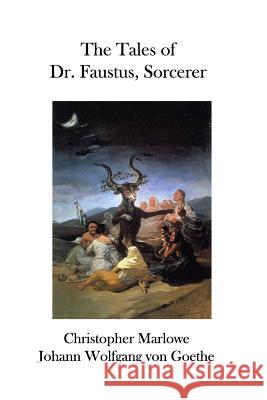The Tales of Dr. Faustus, Sorcerer » książka
The Tales of Dr. Faustus, Sorcerer
ISBN-13: 9781926842127 / Angielski / Miękka / 2010 / 560 str.
Thank you for checking out this book by Theophania Publishing. We appreciate your business and look forward to serving you soon. We have thousands of titles available, and we invite you to search for us by name, contact us via our website, or download our most recent catalogues. Faust or Faustus (Latin for "auspicious" or "lucky") is the protagonist of a classic German legend. Though a highly successful scholar, he is unsatisfied, and makes a deal with the Devil, exchanging his soul for unlimited knowledge and worldly pleasures. Faust's tale is the basis for many literary, artistic, cinematic, and musical works. The meaning of the word and name has been reinterpreted through the ages. Faust, and the adjective Faustian, are often used to describe an arrangement in which an ambitious person surrenders moral integrity in order to achieve power and success: the proverbial "deal with the devil." The terms can also refer to an unquenchable thirst for knowledge. The Faust of early books-as well as the ballads, dramas and puppet-plays which grew out of them-is irrevocably damned because he prefers human to divine knowledge; "he laid the Holy Scriptures behind the door and under the bench, refused to be called doctor of Theology, but preferred to be styled doctor of Medicine." Plays and comic puppet theatre loosely based on this legend were popular throughout Germany in the 16th century, often reducing Faust to a figure of vulgar fun. The story was popularized in England by Christopher Marlowe, who gave it a classic treatment in his play, The Tragical History of Doctor Faustus. In Goethe's reworking of the story 200 years later, Faust becomes a dissatisfied intellectual who yearns for "more than earthly meat and drink"











